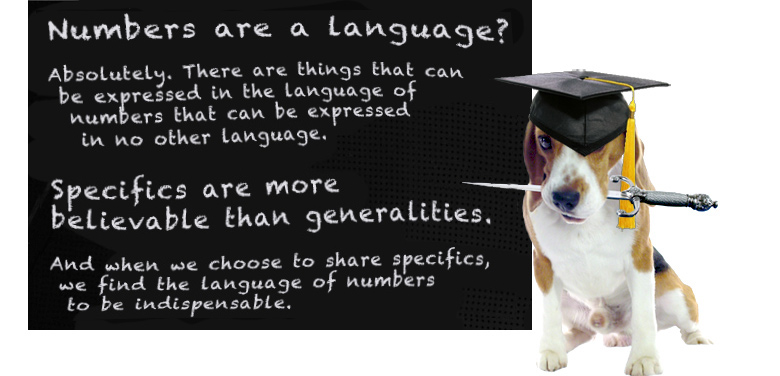The name Wizard Academy causes a lot of people to scorn our school without knowing anything about us.
And that, my friend, is the primary reason we chose the name. 🙂
We don’t want uptight people coming here.
When the right people – people like you – are confronted with the name Wizard Academy, they are filled with curiosity. And so they investigate. They visit the website, watch a few videos, read some MondayMorningMemos.
Curiosity and a hunger for wonder are what Wizard Academy alumni seem to have in common.
Wonder. Do you remember it?
“Later that evening when we sat at the train station waiting to board our train I opened the notebook and wrote a question at the top of the first page: Where do you find wonder? That was the central question for a magician, certainly, but I also thought it was an important question for anyone. Wonder is something that everyone cares about but no one discusses, and I probably wasn’t the only one in my generation to lie awake in bed one night, unable to sleep, trying to figure out when everything had gone so numb and how to get back. Where do you find wonder? is a good question, but it carries an unstated assumption. The real question is, Where do you find wonder after you have lost it? That’s what I wanted to learn on this trip – why you lose it, and how you get it back.” – Nate Staniforth, Here is Real Magic, p. 114-115
People who lack curiosity
never find the end of the rainbow
or hear the chimes at midnight with a friend.
Ann Pratchett famously said,
“Never be so focused on what you’re looking for that you overlook the thing you actually find.”
Glenn Gould was on a similar trajectory when he said,
“The purpose of art is not the release of a momentary ejection of adrenaline but rather the gradual, lifelong construction of a state of wonder…”
Tom Robbins said it in a way that includes me.
“A lot of my work comes from what in Asia is called the ‘mind of wonder.’ There is not a lot of ‘mind of wonder’ writing in contemporary Western literature. I think that’s what appeals to the readers who are my fans.”
Albert Einstein said it first.
“The most beautiful thing we can experience is the mysterious. It is the source of all true art and science. He to whom the emotion is a stranger, who can no longer pause to wonder and stand wrapped in awe, is as good as dead —his eyes are closed.”
But G.K. Chesterton said it succinctly.
“We are perishing for want of wonder, not for want of wonders.”
Wizard Academy teaches the communication arts. These include speaking and writing, of course, but symbols, colors, shapes, music and numbers are language as well. And each one plays a role in successful advertising and marketing.
I share these things with you because
I am thinking about the future.
And what I want it to hold.
Curiosity is the gift I would give you.
And wonder is what I want you to find.
We’re here when you want to visit.
Roy H. Williams
Chancellor, Wizard Academy
 Routine meetings are a mind-numbing experience. A black hole of time and energy. De-motivating. Life-sucking. Bad. Dick and Emily Axelrod help companies like Coca Cola, Hewlett-Packard, Boeing, and General Electric transform their business meetings into enjoyable, productive, collaborative experiences. Meaningful work gets done! Better decisions are made! Managers and employees work together to bring about organizational change! Listen in as Dick and Emily tell roving reporter Rotbart why attendance at all business meetings should be strictly voluntary. Your head will spin. Your heart will pound. Your vision will get blurry. Prepare to be amazed. At MondayMorningRadio.com
Routine meetings are a mind-numbing experience. A black hole of time and energy. De-motivating. Life-sucking. Bad. Dick and Emily Axelrod help companies like Coca Cola, Hewlett-Packard, Boeing, and General Electric transform their business meetings into enjoyable, productive, collaborative experiences. Meaningful work gets done! Better decisions are made! Managers and employees work together to bring about organizational change! Listen in as Dick and Emily tell roving reporter Rotbart why attendance at all business meetings should be strictly voluntary. Your head will spin. Your heart will pound. Your vision will get blurry. Prepare to be amazed. At MondayMorningRadio.com
